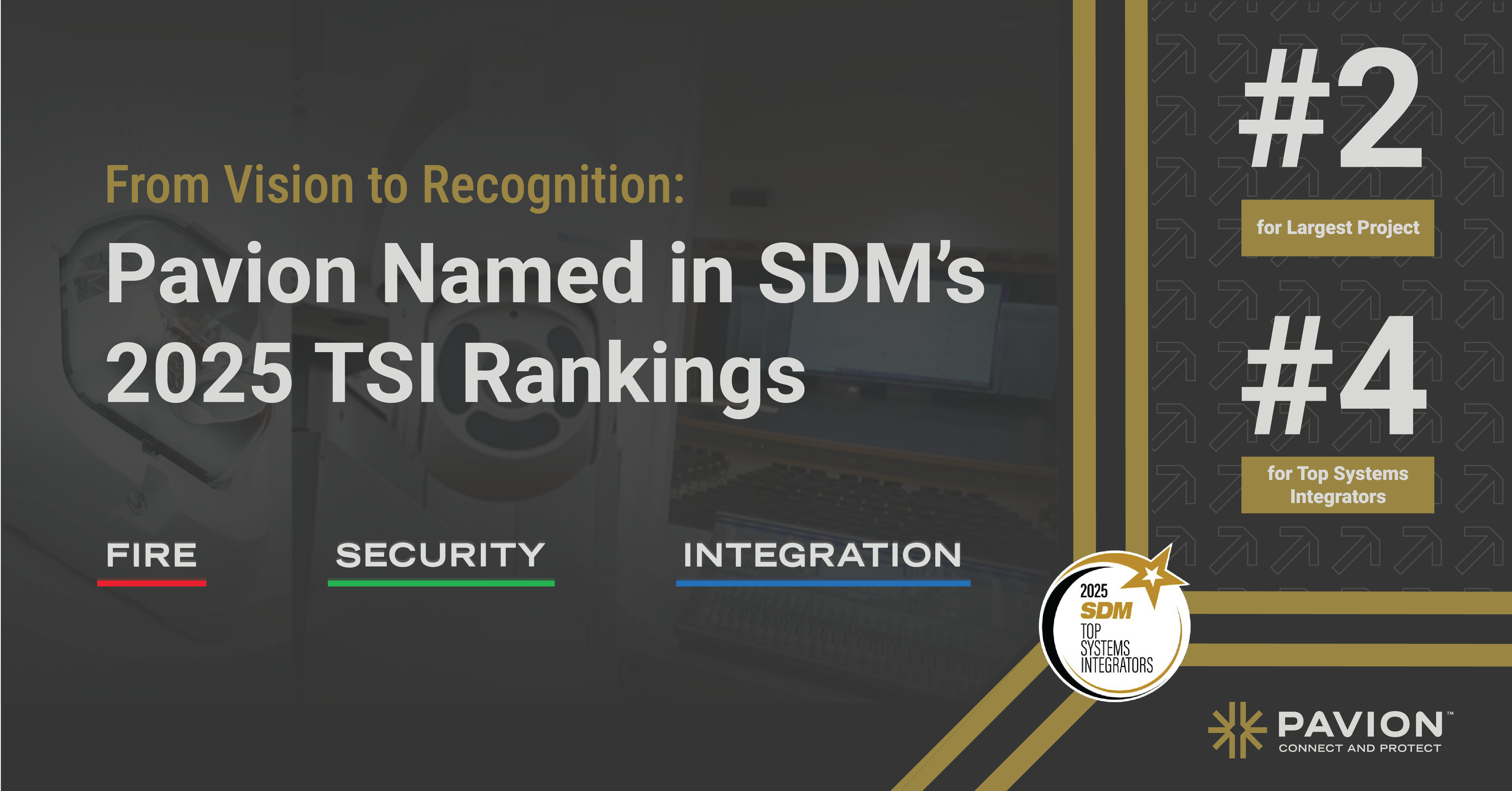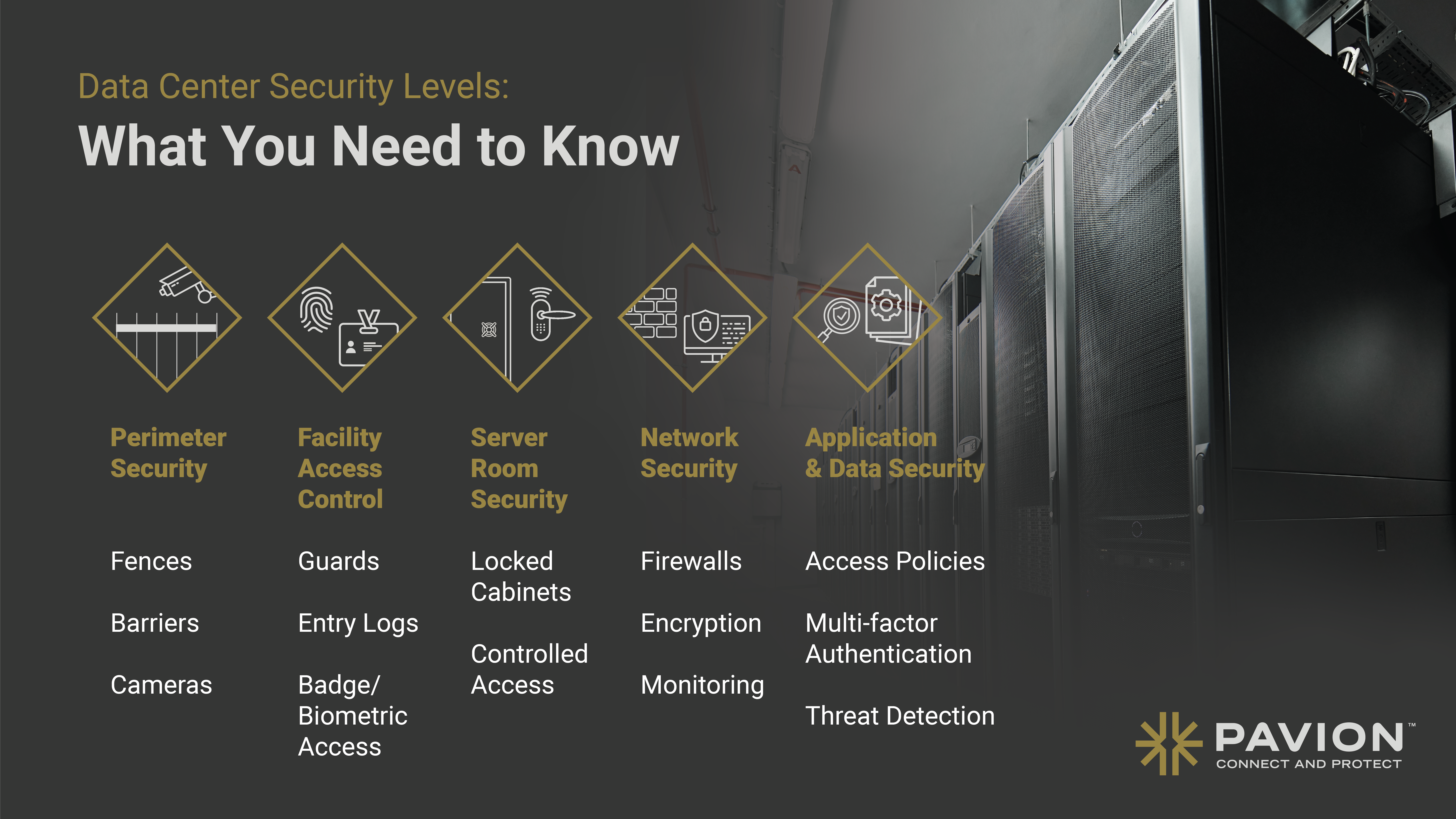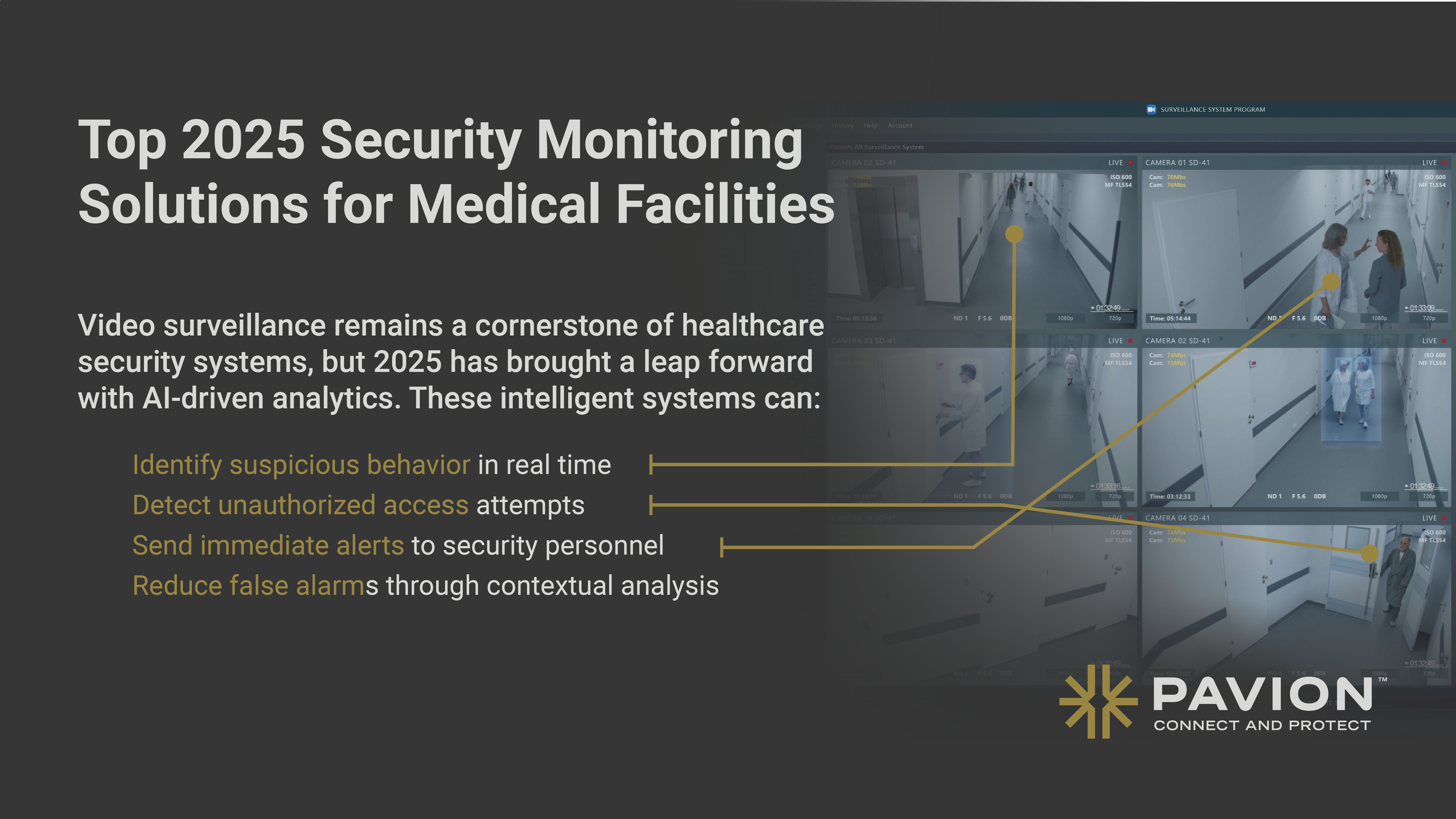
Advanced Security Measures for High-Risk Industries
In today’s increasingly digital world, the need for advanced security measures has become more crucial than ever, especially for high-risk industries. These industries face unique challenges and threats that require robust security solutions to safeguard their assets, information, and operations. At Pavion, we specialize in providing advanced security measures tailored to the specific needs of high-risk industries, ensuring their protection and peace of mind.
Understanding High-Risk Industries
Before delving deeper into advanced security measures, it’s important to understand what high-risk industries entail. High-risk industries are those sectors that are more prone to security breaches, theft, sabotage, or other significant risks that can disrupt the normal functioning of businesses. These sectors include but are not limited to finance, healthcare, energy, transportation, and government agencies.
Finance, as a high-risk industry, deals with vast amounts of money and sensitive financial data. Banks, investment firms, and insurance companies are constantly targeted by cybercriminals seeking to exploit vulnerabilities in their systems. These attacks can lead to financial losses, compromised customer information, and reputational damage.
In the healthcare industry, high-risk factors arise from the need to protect patient privacy and secure medical records. Hospitals, clinics, and pharmaceutical companies face the constant challenge of safeguarding sensitive patient information from unauthorized access. A breach in healthcare systems can have severe consequences, including identity theft, fraudulent medical claims, and compromised patient care.
Energy, another high-risk industry, encompasses oil and gas companies, power plants, and renewable energy providers. The critical infrastructure and valuable assets involved make this sector an attractive target for both cybercriminals and physical intruders. Disruptions in the energy sector can lead to power outages, environmental disasters, and economic instability.
Transportation, which includes airlines, shipping companies, and logistics providers, faces unique security challenges due to the global nature of its operations. The movement of goods and people across borders presents opportunities for theft, smuggling, and terrorist activities. Ensuring the safety and security of passengers, cargo, and infrastructure is paramount in this high-risk industry.
Government agencies, responsible for maintaining law and order, national security, and public services, are prime targets for cyber-attacks and espionage. The sensitive information they handle, such as classified documents and citizen data, requires robust security measures to prevent unauthorized access. Breaches in government systems can compromise national security, disrupt public services, and erode public trust.
Defining High-Risk Industries
High-risk industries can be categorized based on the nature of their operations, the value of their assets, or the sensitivity of the information they handle. They typically involve businesses that handle critical infrastructure, deal with confidential data, or rely heavily on technology for their operations.
Businesses involved in critical infrastructure, such as power grids, telecommunications networks, and transportation systems, are considered high-risk due to the potential impact of disruptions. Any compromise in these systems can have far-reaching consequences, affecting the economy, public safety, and essential services.
Industries that deal with confidential data, such as financial institutions, healthcare providers, and legal firms, are also classified as high-risk. The unauthorized disclosure or manipulation of this information can lead to financial losses, privacy breaches, and legal ramifications.
Moreover, industries heavily reliant on technology, such as e-commerce, online payment processors, and cloud service providers, face inherent risks due to the interconnected nature of their operations. Cyber-attacks targeting their systems can result in service disruptions, data breaches, and financial fraud.
Common Threats in High-Risk Industries
High-risk industries face a wide range of threats. These can include cyber-attacks, physical intrusions, employee misconduct, industrial espionage, natural disasters, and even terrorist activities. It’s essential to have advanced security measures in place to mitigate these risks effectively.
Cyber-attacks are one of the most prevalent threats faced by high-risk industries. Hackers employ various techniques, such as phishing, malware, and ransomware, to gain unauthorized access to systems and steal sensitive information. The constantly evolving nature of cyber threats requires organizations to stay vigilant and employ robust cybersecurity measures.
Physical intrusions, including theft, vandalism, and sabotage, pose significant risks to high-risk industries. Criminals may target valuable assets, disrupt operations, or compromise safety measures. Implementing access controls, surveillance systems, and physical barriers can help deter and detect such intrusions.
Employee misconduct, whether intentional or unintentional, can also pose threats to high-risk industries. Insider threats, such as data theft or sabotage by disgruntled employees, can cause significant harm. Organizations must establish strong internal controls, conduct regular security awareness training, and monitor employee activities to mitigate these risks.
Industrial espionage, particularly in sectors with valuable intellectual property, is a constant concern. Competitors or foreign entities may attempt to steal trade secrets, research findings, or proprietary technology. High-risk industries must implement robust data protection measures, including encryption and access controls, to safeguard their intellectual assets.
Natural disasters, such as hurricanes, earthquakes, or floods, can disrupt high-risk industries and cause widespread damage. Organizations must have contingency plans in place to ensure business continuity and minimize the impact of such events. This may include redundant systems, off-site backups, and disaster recovery protocols.
Lastly, high-risk industries are also potential targets for terrorist activities. Attacks on critical infrastructure, transportation hubs, or government facilities can have devastating consequences. Collaborating with law enforcement agencies, implementing stringent security protocols, and conducting regular risk assessments are crucial in mitigating these threats.
Importance of Advanced Security Measures
The importance of advanced security measures in high-risk industries cannot be overstated. Such measures are crucial for protecting the integrity and continuity of business operations.
High-risk industries, such as banking, healthcare, and government agencies, handle sensitive information and valuable assets on a daily basis. Without adequate security measures in place, these industries would be vulnerable to various threats, including cyberattacks, theft, and unauthorized access.
Protecting Assets and Information
One of the primary goals of advanced security measures is to safeguard the valuable assets and sensitive information of high-risk industries. Through effective access control systems, surveillance, and data encryption technologies, businesses can ensure that unauthorized individuals cannot gain access to critical areas or confidential data. When designing and implementing a security plan and system for these types of businesses, it is important to work with a security professional who understands your business, the risks involved with an attack on your business and how to mitigate those challenging risks.
Access control systems, such as biometric scanners and smart card readers, provide an additional layer of security by verifying the identity of individuals before granting them access to restricted areas. Surveillance systems, including CCTV cameras and motion sensors, monitor activities in real-time, deterring potential intruders and providing evidence in case of security breaches.
Data encryption technologies, such as secure socket layer (SSL) and virtual private networks (VPNs), protect sensitive information during transmission, making it virtually impossible for hackers to intercept and decipher the data. By implementing these advanced security measures, high-risk industries can maintain the confidentiality, integrity, and availability of their assets and information.
Ensuring Business Continuity
In high-risk industries, any disruption to operations can have severe consequences. Advanced security measures play a vital role in ensuring business continuity by minimizing the risk of unauthorized access, preventing theft or damage to assets, and implementing reliable systems for disaster recovery and emergency response.
Unauthorized access to critical systems or facilities can lead to significant disruptions in operations, resulting in financial losses and reputational damage. By implementing advanced security measures, such as intrusion detection systems and firewalls, high-risk industries can detect and prevent unauthorized access attempts, ensuring the continuity of their business operations.
Moreover, theft or damage to valuable assets, such as equipment, intellectual property, or confidential documents, can cripple a high-risk industry. Advanced security measures, such as surveillance cameras, alarm systems, and asset tracking technologies, help deter theft and provide early detection of any suspicious activities, allowing businesses to take immediate action and minimize potential losses.
In the event of a disaster or emergency, high-risk industries need reliable systems for disaster recovery and emergency response. Advanced security measures, such as backup power generators, redundant data storage, and emergency evacuation plans, ensure that businesses can quickly recover from any disruptions and continue their operations without significant downtime.
In conclusion, advanced security measures are essential for high-risk industries to protect their assets and information, as well as ensure business continuity. By implementing access control systems, surveillance technologies, and data encryption measures, these industries can mitigate the risks associated with unauthorized access, theft, and disruptions to operations. Investing in advanced security measures is not only a necessity but also a strategic decision to maintain the integrity and continuity of business operations in high-risk environments.
Types of Advanced Security Measures
Advanced security measures encompass a wide range of strategies and technologies designed to address the unique challenges faced by high-risk industries.
Physical Security Measures
Physical security measures include the installation of surveillance cameras, access control systems, alarms, and secure entry points to prevent unauthorized intrusions. Additionally, advanced locking systems, fences, and barriers can help deter potential threats effectively.
Digital Security Measures
Digital security measures are equally important in high-risk industries. These measures involve implementing robust firewalls, intrusion detection systems, secure network protocols, and encryption techniques to protect against cyber threats and unauthorized access to sensitive information.
Implementing Advanced Security Measures
Implementing advanced security measures requires a comprehensive approach that encompasses risk assessment, planning, and employee training.
Risk Assessment and Planning
Prior to implementing security measures, it’s essential to conduct a thorough risk assessment to identify vulnerabilities and potential threats. This assessment will help determine the most appropriate and effective security solutions for each high-risk industry. A customized security plan must then be devised and implemented, taking into account the unique requirements and challenges faced by the specific industry.
Training and Awareness
No security system is complete without knowledgeable and trained personnel. It’s crucial to provide regular training and awareness programs to employees, ensuring they understand best practices, security protocols, and potential risks. This will empower the workforce to actively contribute to maintaining a secure environment.
Maintaining and Updating Security Measures
Implementing advanced security measures is only the first step. To ensure their effectiveness long-term, it’s essential to regularly maintain and update security systems.
Regular Security Audits
Regular security audits are necessary to identify any weaknesses or vulnerabilities in existing security measures. These audits involve reviewing access control systems, surveillance cameras, and other security components. Any outdated equipment or procedures should be promptly addressed and upgraded.
Adapting to Evolving Threats
The security landscape is continually evolving with new threats emerging regularly. High-risk industries must stay vigilant and adapt their security measures to address these evolving risks. Continuous monitoring, threat assessment, and proactive updates to security systems are crucial to stay one step ahead of potential threats.
In conclusion, advanced security measures are imperative for high-risk industries to protect their assets, information, and reputation. At Pavion, we understand the unique challenges these industries face and specialize in providing industry-leading security solutions tailored to meet their specific needs. By embracing advanced security measures, businesses in high-risk industries can ensure the continuity of their operations and safeguard their invaluable resources.
Secure Your High-Risk Industry with Pavion
Don’t wait for a security breach to realize the importance of advanced protection. Pavion is dedicated to connecting and protecting your high-risk industry with our comprehensive fire, security, and integration solutions. With our expertise in serving enterprise, healthcare, education, government, data centers, and retail industries, we bring clarity and transformation to your safety and security needs. Embrace peace of mind with our technology innovation and radical service. Get a Free System Assessment today and take the first step towards a more secure future.


